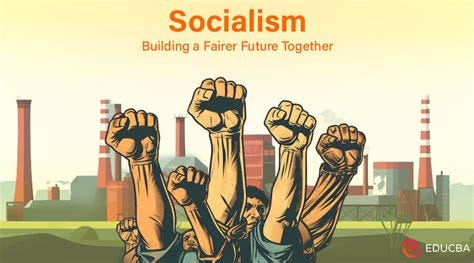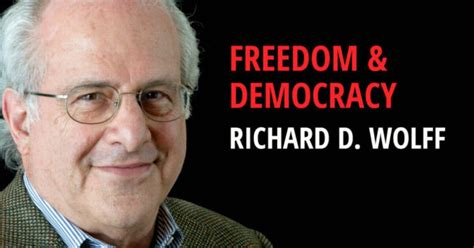On the Keystone of Capitalism: The Employer-Employee Relationship
why it sucks, and yes we CAN do better
Economic systems are always based on which classes of people have power over others and how that power is manifested in the material world.
This can be seen most easily by looking at the relationship between those who have the authority to make decisions and those who are required to obey them.
In ancient times, there was the master-slave relationship. The master, in Latin the dominus, had total control over the slave. This control was implemented by those whom the masters granted privileged status because they could not maintain such control by their own direct actions alone.
Usually, this ancient professional management class(PMC) had several specialties—priests, scribes, soldiers, lawyers, judges and the like, who were dependent on the prevailing social order for their own livelihoods.
As always happens, changing material conditions made this form of social organization unworkable, and it was replaced by feudalism. Instead of master-slave, we got lord-serf or lord-peasant, with some PMCs in the middle.
Material circumstances changed once again, and we got capitalism. Under capitalism, the employer class gives the orders to the employee class, with a whole bunch of PMC types, employees themselves, in between to make sure those orders are followed by the lower ranking employees.
One thing consistent with all three systems is that the ruling class decides how all of the fruits of the labor of their slaves, serfs, or employees is distributed. Those on the bottom can only wring concessions by making the rulers afraid of what might happen if they don’t, and concessions made can always become concessions withdrawn a few years later.
Some of you are no doubt reading this and thinking, “Well, yeah, but that’s just the way it is and if you work hard enough, you can become an employer yourself,” or even more likely, “OK, but capitalism is the best system ever because all of the others have failed,” or perhaps, “Shut up, you fucking commie!,” in which case I’ll ask you if you have noticed the price of eggs lately.
We are not supposed to think about this. All of us in the West have been indoctrinated since birth that there simply must be employers and employees; otherwise everything would fall apart and we would be living like savages. Anybody who says otherwise is a crazy commie or a bomb-throwing anarchist.
Lots of folks who lived in slave and feudal societies thought the same thing about their systems. They were mistaken, and so are the apologists of capital today.
Why should we have this employer-employee relationship as the mainstay of our economic system? What’s so great about giving this tiny group of people, employers, absolute power over their employees in the workplace?
There are all sorts of capitalist answers to this socialist and anarchist question, usually couched in moral terms that somehow say the employer deserves his privileged status because of investment or risk or genius or whatever, and that if the employees don’t like it they can work hard and become an employer themselves or go shop for a new one who will treat them better.
Authoritarian Communism has to answer that same question. For some strange reason that just maybe had something to do with increasing their own personal power, the Bolsheviks in Russia and Maoists in China somehow never got around to abolishing that employer-employee relationship that Marx wrote at least 5000 pages on.
Nope. Instead, they just made the State or the Party the employer, and everybody else employees of one sort or the other. That’s why anti-authoritarian socialists and anarchists call that system state capitalist.
Eventually the contradictions of those systems destroyed them, too, just as dialectical materialism predicted, and they have been replaced by oligarchies that are, for now anyway, making sure enough of the wealth in their respective societies goes to the working class so that they stay loyal to the oligarchs, but they still have the employer-employee relationship as the keystone of their systems.
None of the systems I have described can be called democratic. All of them teach, directly or indirectly, that their privileged classes deserve their privilege because they are in the class that says it is supposed to be privileged.
Marx called for the horribly worded, as are so many things in German, “dictatorship of the proletariat,” meaning the employee class should dictate policy instead of the employer class, which in plain English means there should be democracy in the workplace. There are no individual dictators involved, which is why I think Marx’s choice of words was so unfortunate.
The majority of employees should be making the big decisions instead of the employer, according to Marx and Engels. In fact, there is no need for employers at all if the employees are empowered to make the decisions. That’s socialism in a nutshell.
Furthermore, an alternative system already exists. It’s called worker cooperatives, or co-ops. There are still managers, supervisors, and hierarchy, because organization is necessary for humans to get anything done in any kind of cooperative effort, but the ultimate say in just who those managers and supervisors are rest with the workers of the co-op, not some distant CEO in a corner office.
The priorities of co-ops concern what is best for the workers themselves, their communities, and their environment. There is only one priority for capitalist employers, the same single goal as the entire capitalist system: More Profit Soonest, regardless of the consequences to their employees, or to their communities, or to their environments.
In that sense, in their internal power structure co-ops are much more like traditional and communal human societies that have been around since forever, and generally do just fine until they are attacked by a better organized and much more predatory system. Like feudalism or capitalism.
This means that any future society that dumps the employee-employer relationship will have to make damned sure that it can defend itself, but in this age of Mutually Assured Destruction I have faith that it now can in fact be done.
Moreover, such a society would be utterly incapable of electing narcissistic multi-billionaires to direct the lives of the bottom 99%, or of engaging in Forever War just so a fortunate few can lord it over the rest of us and throw $50 million weddings in Venice or blow $100 million just to ride above most of the atmosphere for a few minutes.
I think the idea of doing away with the employer-employee relationship is well-worth exploring. If you want to find out more, just read anything by Professor Richard Wolff, the greatest American Marxist economist ever.
You probably can’t find him at your local library. I know I can’t. But his books are available, and he has lots of free videos on YouTube. If you are curious, please learn a lot more from him. I think it would be well worth your time.
Thank you for reading, good day or night, and good luck.
If you appreciate my scribbling, please share this post and consider making a one-time donation by buying me a beer or becoming a paid subscriber at the lowest available rates on Substack to help me keep scribbling.










I've always considered it strange that people will insist that they live in a democracy when, for a third of most days, they submit to a totalitarian regime.
Of course, they tell me, they go to work voluntarily. They could quit. If they want to eat, however, they'll likely be going to serve some other totalitarian regime. Cool and normal.
The "Free" Market can be summed up by this image: a kneeling worker holds an empty bowl while a boss points a gun at their head and asks, "Tell me again, how much do you think your labour is worth?" We could mark the bowl, "Law of Wages".
Lots of big issues, but there is nothing I can object to. I DO believe in capitalism. However, what is concurrent in the US is NOT capitalism, at least not a proper way to realize capitalism. Capitalism has a good foundation at the start, as it follows human nature. What Adam Smith did not talk about was that capitalists, producers, retailers, and consumers are also humans and share the same society. If capitalists and bosses treat their employees well (many do), the relationship between employers and employees can be a lot better. Ancient Chinese teachings about business were few and I don't know much besides those depicted in novels and dramas. The theme has always been that employers have to treat employees as family. If not, even the brothers and sisters of the employers can conspire against the big bosses. The Western business schools focus on numbers and treating employees as a necessary cost, no different from a machine used for production.
Capitalism, Socialism, even Communism, etc., have all sorts of definitions and branding. However, if there is no significant portion of humanism and genuine concerns about people's lives, whatever ism it may be would fail just the same. What has sickened the USA is very similar to the Middle East crisis in the sense that the Jews of Israel are unable to acquire real peace and prosperity because they treat Palestinians like trash, while the US capitalists and power elites treat we small potatoes as subjects needing psychological influencing or ranch animals needing to be fed. They think circus and bread would work. Ancient Roman power elites at least understood that the public needed entertainment and food. Modern American capitalists and power elites, seemed to be ignorant or unconcerned about people's needs. We are either laborers, producers, or consumers. Money and material flows so everybody should be happy. How come you are not happy?